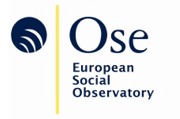As part of the preparation of an Opinion on guaranteed minimum income at European level, the Workers' Group of the European Economic and Social Committee (EESC) contracted the OSE to conduct a study entitled “Towards a European Minimum Income”. The main objective of this research is to explore the feasibility of introducing a European instrument relating to non-contributory minimum income schemes for able-bodied persons of working age. The study, which combines qualitative and quantitative research methods, provides first a detailed overview of guaranteed minimum income schemes existing in the EU member states, in terms of organization, adequacy and conditionality.
The principal trends of their development and the challenges with which they are confronted are also studied. Another part of the study reviews the main EU level initiatives in the domain of minimum income protection, and provides an analysis of EU and international legal frameworks, to shed light on the legal and political feasibility of introducing an EU level instrument on minimum income protection. Finally, a last part of the research, conducted in partnership with the Research Institute for Work and Society (HIVA) of the KU Leuven, assesses the financial implications of an EU level instrument aimed at helping EU member states to achieve higher levels of guaranteed minimum income, achieving a better fit between current levels and the various relative poverty lines. These are explored, taking into account different scenarios reflecting the different relative poverty thresholds and take-up rates.
OSE researchers involved in this project: Ramón Peña-Casas, Dalila Ghailani, Sebastiano Sabato, and Bart Vanhercke
Associate partner: Ides Nicaise, Research Institute for Work and Society (HIVA) of the KU Leuven
